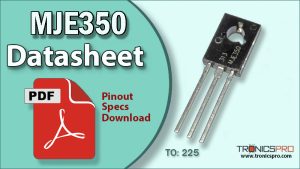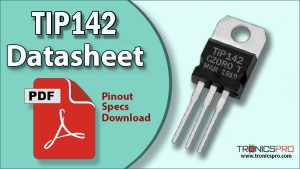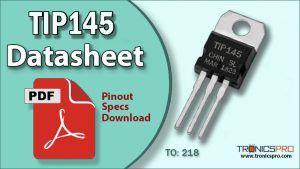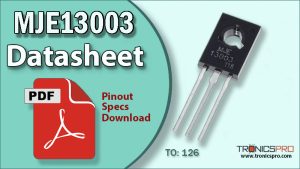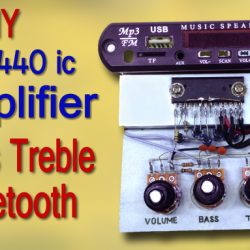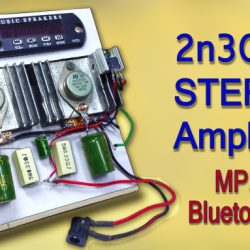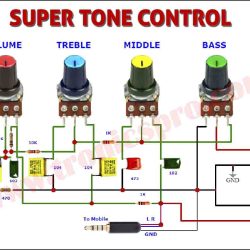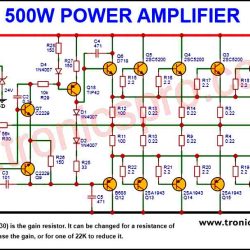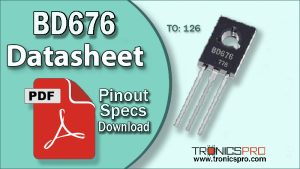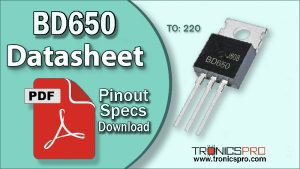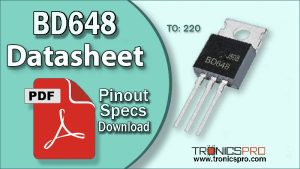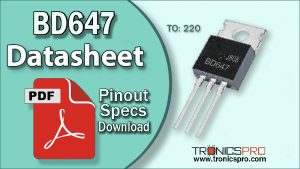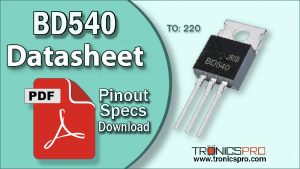The BD645 NPN transistor is a Darlington-type power transistor optimized for high current gain, moderate voltage, and robust operation in driver and amplifier circuits. This guide covers the BD645 pinout, transistor datasheet, alternatives, and real-world applications, plus how it pairs with its PNP complement for push-pull designs.
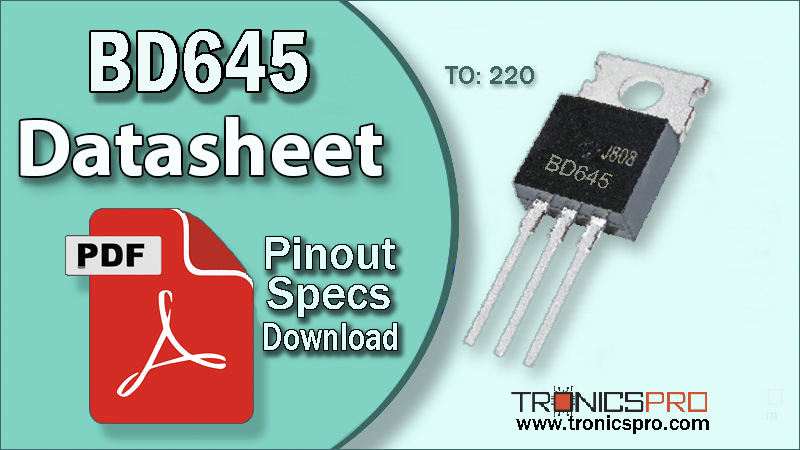
Introduction to BD645 NPN Transistor
The BD645 is an NPN Darlington transistor that offers very high current gain, making it ideal for circuits needing amplification of weak signals into strong currents. Because it uses two transistors internally, it can achieve gains in the hundreds, allowing small base currents to control substantial loads.
It is commonly used in amplifier driver stages, regulator pass transistors, relay drivers, and other medium-power switching tasks. The Darlington format means there is a higher saturation voltage, so designers should account for some voltage drop when selecting it for power paths.
In many designs, BD645 is paired with a complementary PNP Darlington transistor (BD646) to build symmetrical output stages. Together, they provide balanced push-pull behavior for audio amplifiers, motor drivers, and power control systems.
BD645 NPN Transistor
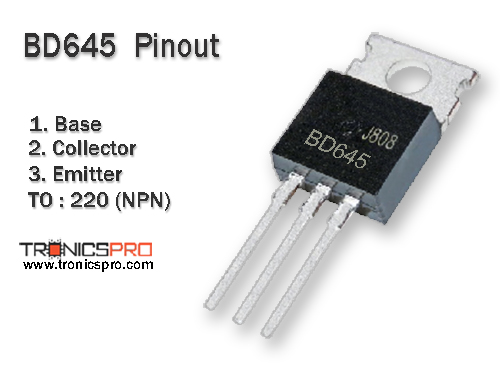
Pinout of BD645
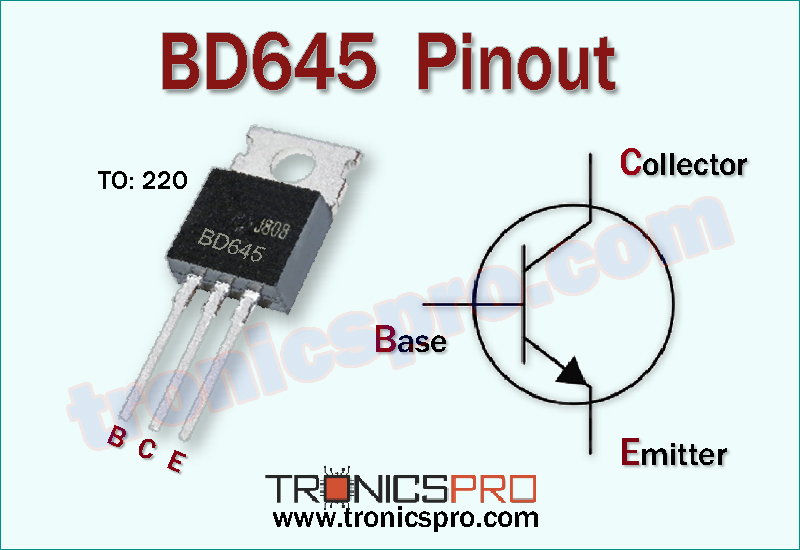
Understanding the BD645 Pinout Configuration
The BD645 is housed in a TO-220 Darlington package, which makes mounting and cooling easier. The pinout order is Base, Collector, Emitter, from left to right when facing the front of the device.
Pin Configuration of BD645 Pinout
| Pin# | Pin Name | Pin Description |
|---|---|---|
| 1 | Base | Input control terminal |
| 2 | Collector | Main current output terminal |
| 3 | Emitter | Return / load terminal |
In many TO-220 packages, the metal tab is also connected to the collector. That means the heat sink is electrically the collector, so caution is needed in isolating it if used in circuits where the collector is not at ground.
Key Features of BD645 Transistor
- High DC current gain due to Darlington configuration
- Moderate voltage rating (≈ 60 V)
- Handles substantial collector current (≈ 8 A in pulses)
- Robust thermal design in TO-220 package
- Compatible with complementary PNP Darlington BD646
- Good for driving loads where high gain is needed
- Suitable for amplifier and switching duties
BD645 Transistor Datasheet and Specifications
Here are key values from the BD645 datasheet (Darlington NPN) that define its performance:
- Collector-Emitter Breakdown Voltage (Vceo) = 60 V (min)
- Collector-Base Breakdown Voltage (Vcbo) = 80 V (min)
- Emitter-Base Breakdown Voltage (Vebo) = 5 V
- Continuous Collector Current (Ic) = 8 A
- Peak (Pulse) Collector Current (Icm) = 12 A
- Continuous Power Dissipation (Pc) at case = 62.5 W
- Saturation Voltage Vce(sat) at 3 A = 2.0 V max
- Base-Emitter On Voltage Vbe(on) at 3 A = 2.5 V max
- DC Current Gain (hFE) = 750 (min) @ 3 A
- Thermal Resistance, Junction-to-Case (θJC) = 2 °C/W
- Operating Junction Temperature (Tj) = 150 °C
- Storage Temperature Range (Tstg) = –65 °C to +150 °C
Working Principle of BD645 NPN Transistor
As a Darlington NPN, BD645 contains two transistors in cascade. A small base current flows into the first transistor, which in turn drives the second transistor, producing a very large current gain overall. Because of this internal structure, the effective base-emitter voltage is higher (sum of both transistors) and the saturation voltage is also higher than a single NPN.
In active mode, the BD645 amplifies current: base current multiplied by the Darlington gain yields collector current. In saturation, it acts as a low-impedance switch for powering loads.
More Circuit Layouts

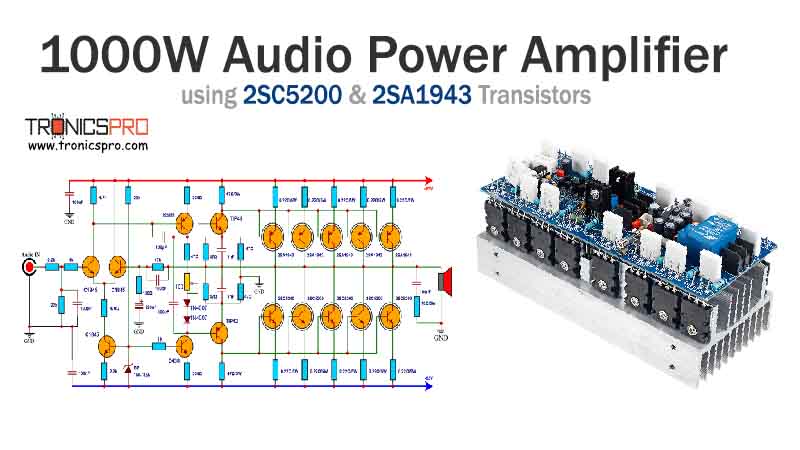
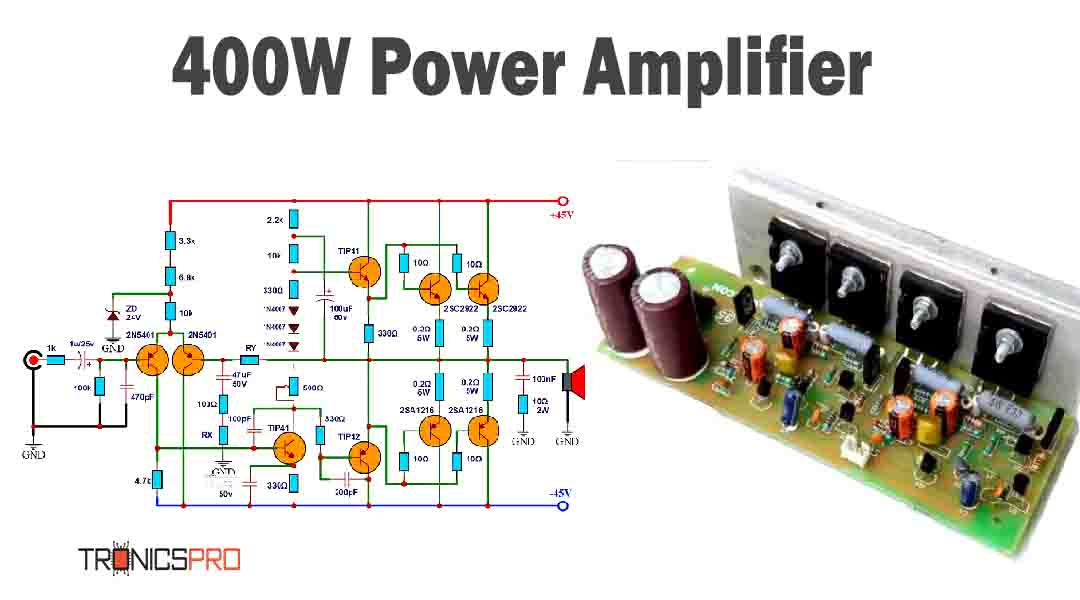
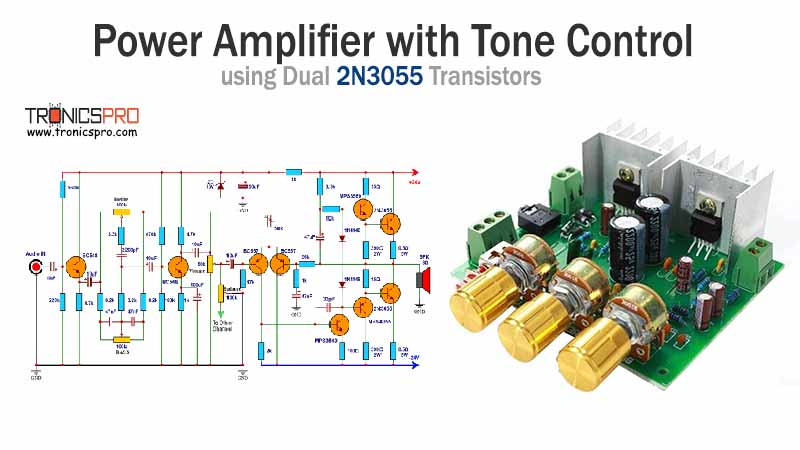
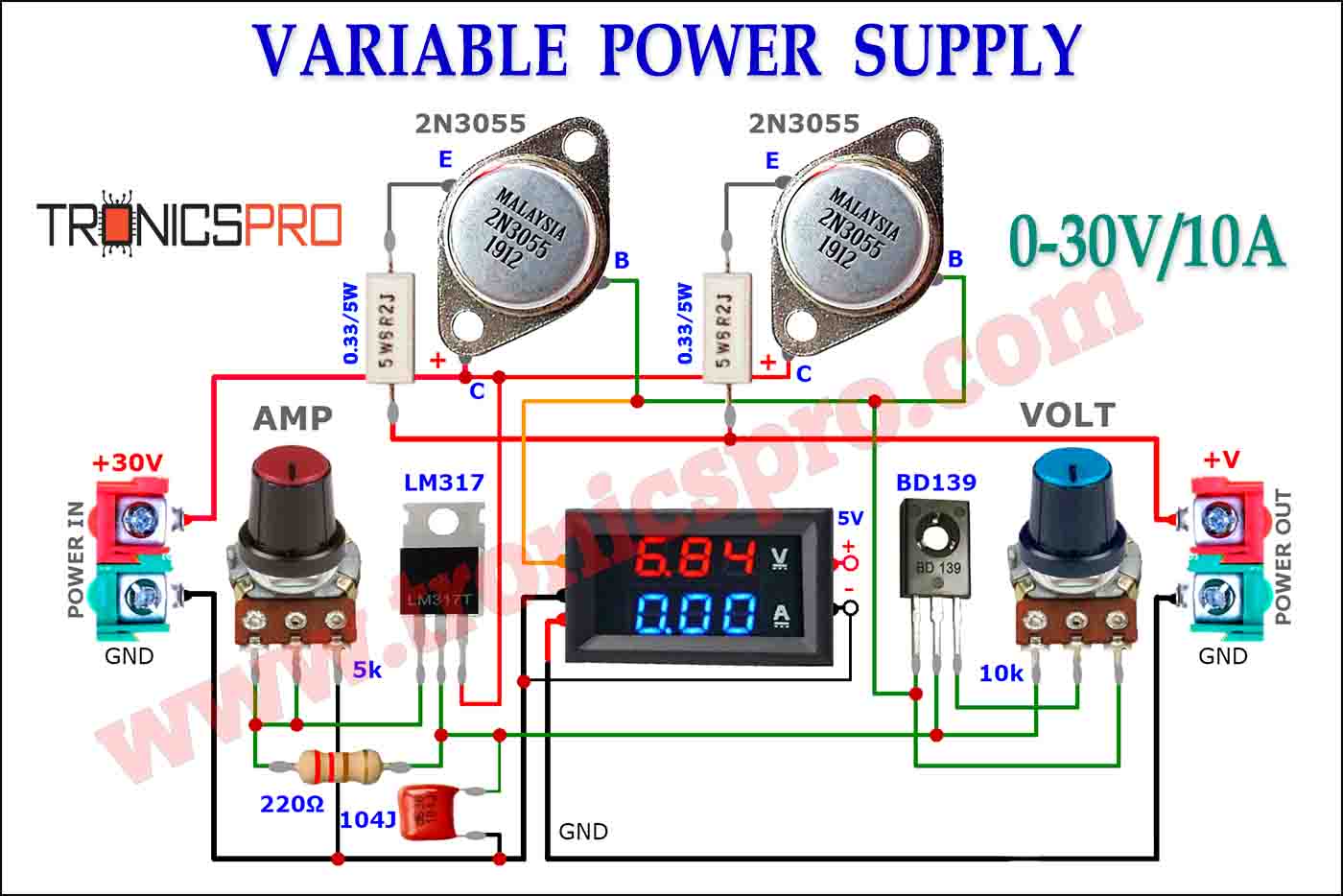
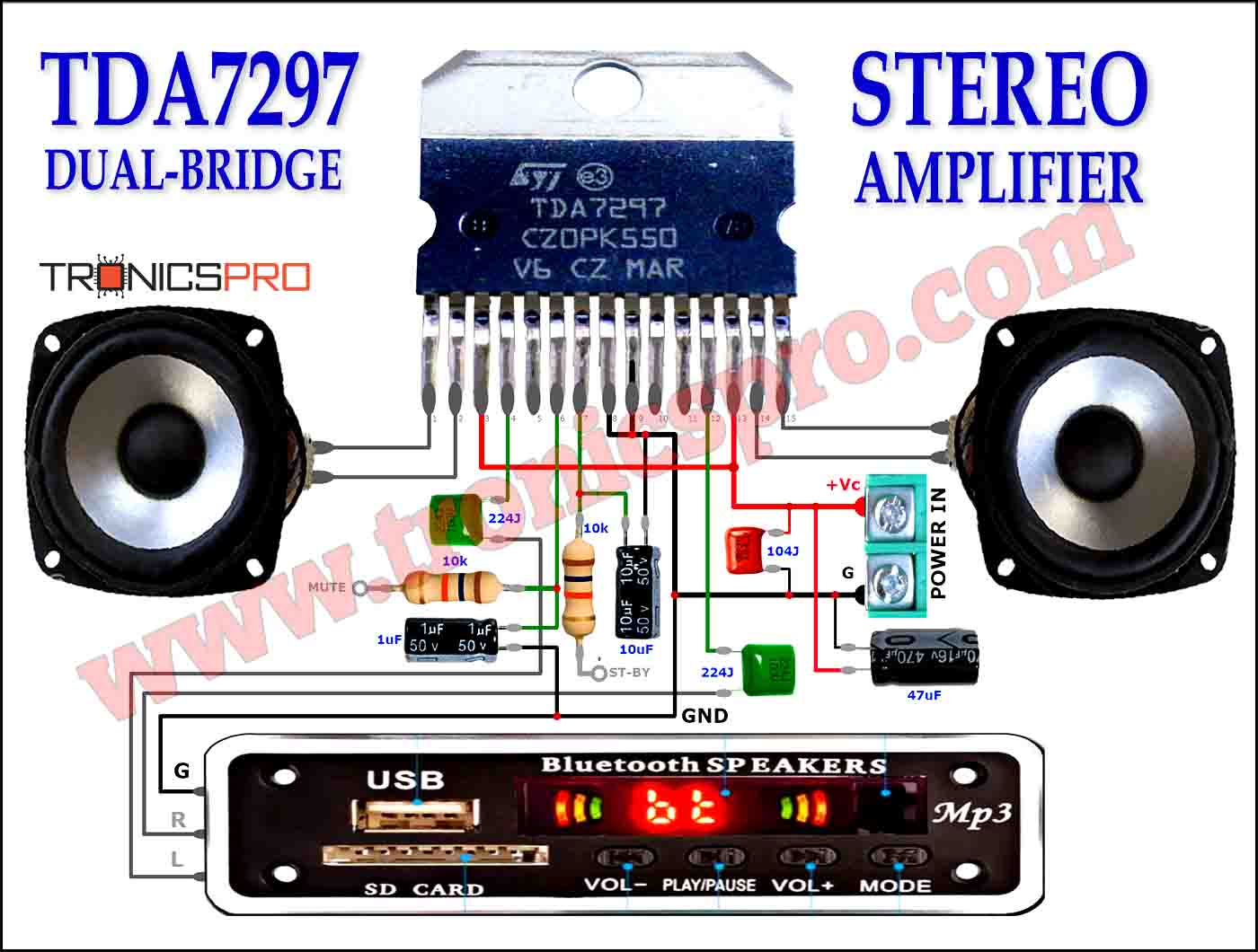
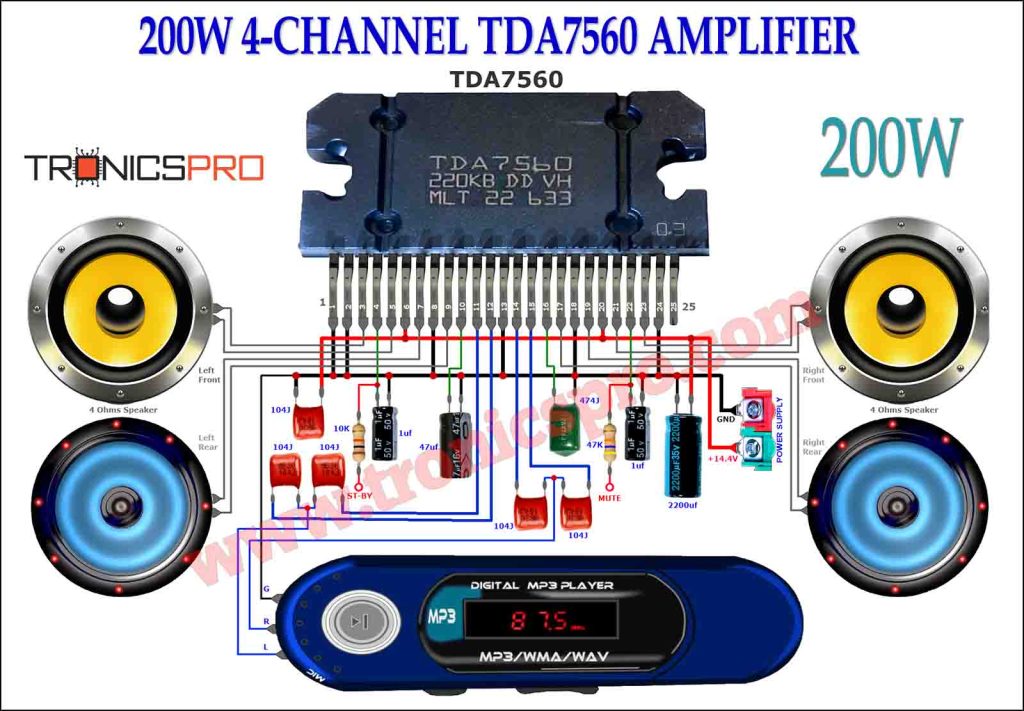
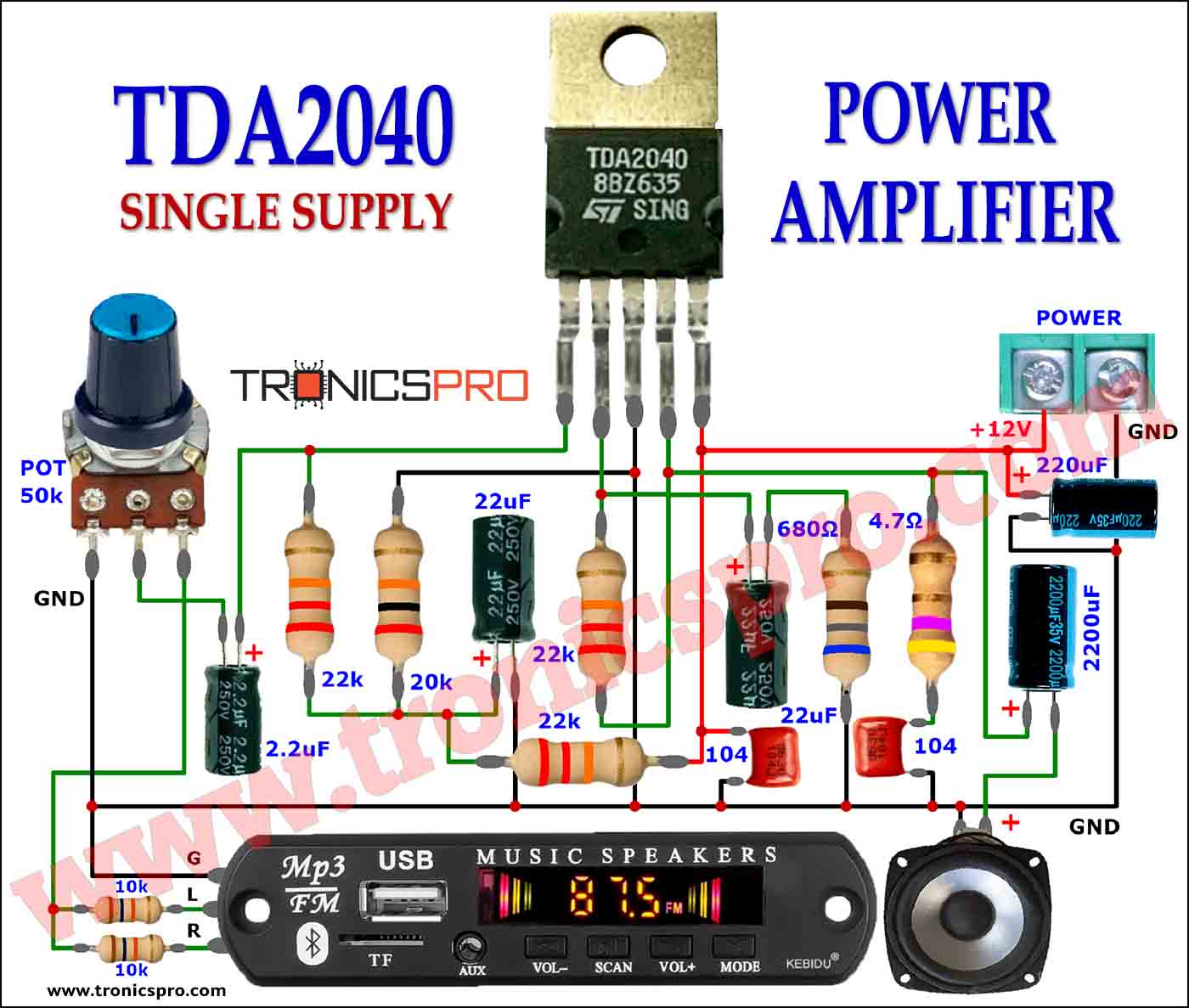
Typical Applications of BD645
- Audio amplifier driver and output stages
- Power supply regulators and control stages
- Relay and solenoid drivers
- Motor drivers in robotics and actuators
- Push-pull complementary amplifier designs
- Switching circuits requiring high gain
PNP Complementary Transistor
The PNP complementary Darlington device to BD645 is BD646. When paired, BD645 (NPN) and BD646 (PNP) form matched Darlington complements, suitable for push-pull audio output stages and power drivers in which symmetry and high gain are desired.
Equivalent Transistors and Alternatives
If BD645 is unavailable, the following Darlington or high-gain transistors may serve as alternatives (given matching voltage/current specs):
- BD647 (higher voltage variant)
- TIP120 / TIP125 series (lower performance)
- MJD122 / MJD127 (Darlington forms)
- BD649 (higher voltage rating version)
Always check pinout, gain, saturation voltage, and power limits before substituting.
Comparison BD645 vs BD646 Complementary Transistors
The BD645 (NPN Darlington) and BD646 (PNP Darlington) are complementary devices, meaning they share similar electrical ratings, but with opposite polarity. In push-pull amplifier circuits, BD645 handles the positive side (NPN direction), while BD646 handles the negative side (PNP direction).
They are engineered to operate symmetrically, offering high gain, matched performance, and reduced distortion in complementary output stages. When one transistor goes active, the other complements it, allowing efficient and clean signal drive across the load.
Frequently Asked Questions (FAQ)
What is the BD645 transistor used for?
BD645 is used in amplifier driver stages, high-gain switching, and push-pull output circuits where high current gain is needed.
What type of transistor is BD645?
It is an NPN Darlington power transistor, combining two NPN transistors internally for high gain.
What is the BD645 pin configuration?
Pin 1 = Base, Pin 2 = Collector (also tab), Pin 3 = Emitter.
What is the complementary transistor for BD645?
The complementary PNP Darlington is BD646.
Can I use BD539 instead of BD645??
No, BD539 is a standard NPN transistor with different characteristics. BD645 is a Darlington with higher gain and different saturation voltage; substituting requires verifying circuit compatibility.
Conclusion
The BD645 NPN Darlington transistor is a powerful high-gain component ideal for applications where strong amplification is required from weak signals. Its high gain, moderate voltage rating, and complementary pairing with BD646 make it popular in audio drivers, power regulation circuits, and switching modules. By understanding its pinout, datasheet, equivalents, and working principles, designers can implement it successfully in robust, high-performance circuits.
Datasheet of BD645 NPN Transistor
Click the following Button to download the datasheet of BD645 Transistor :
More projects, You may like:
- Video Transmitter DIY Homemade FM Radio Transmitter
- Adjustable Power Supply DIY Battery Charger
- 12V-220V 500 Watt inverter DIY Homemade
- MPPT Solar Charge Controller DIY Homemade
- DIY LA4440 bass amplifier homemade
For more project and circuit diagrams, you can go through the Schematics in the main menu where you can find many interesting projects and circuit diagrams like audio amplifier circuits, voltage booster circuit, battery charger circuit and timer circuits etc., which are all beginner circuit projects. Feel free to check them out!

Thank you for visiting the article.


